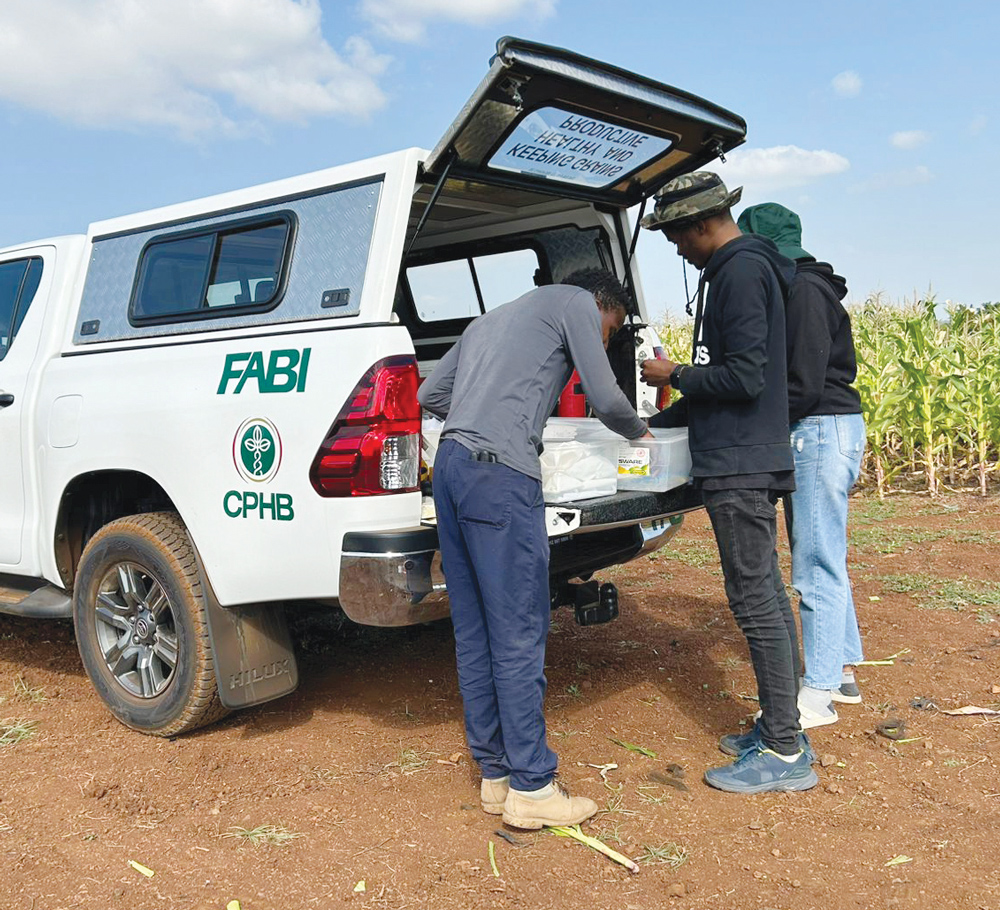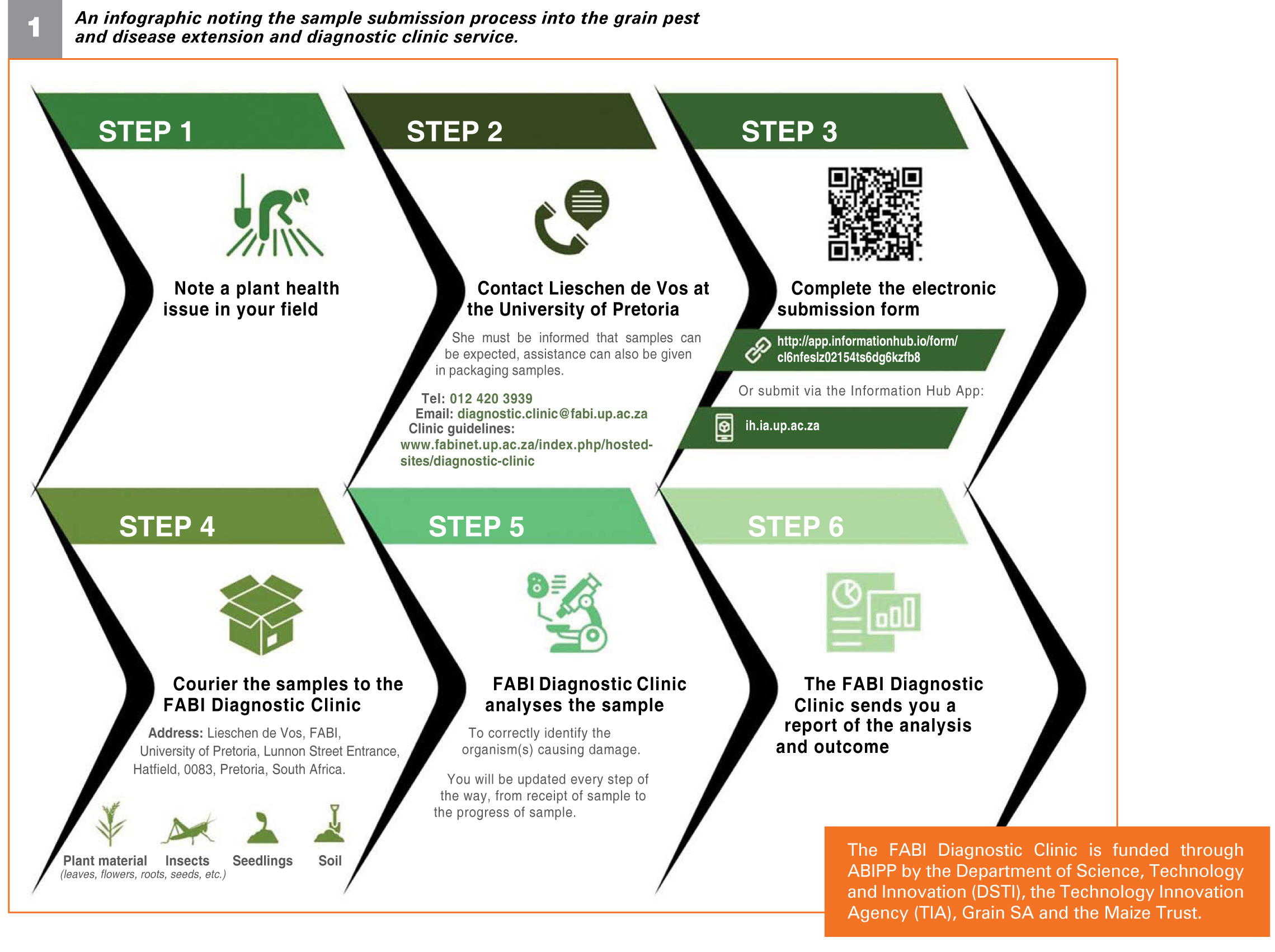February 2025
|
PROF COBUS VISAGIE AND |
 |
MAIZE FARMING IN SOUTH AFRICA CAN BE CHALLENGING, ESPECIALLY DURING THE GROWING SEASON WHEN FARMERS MAY NOTICE UNUSUAL SIGNS SUCH AS WILTING, YELLOWING LEAVES OR STUNTED GROWTH. THESE SYMPTOMS CAN BE EARLY SIGNS OF PEST OR DISEASE PROBLEMS, WHICH CAN LEAD TO SIGNIFICANT CROP LOSSES IF NOT IDENTIFIED AND TREATED QUICKLY.
Fortunately, there are resources available to help farmers identify and manage these challenges. One of the most valuable tools for farmers facing midseason difficulties is the Grain Pest and Disease Extension and Diagnostic Clinic run by the Forestry and Agricultural Biotechnology Institute (FABI) at the University of Pretoria.
THE IMPORTANCE OF EARLY DISEASE DETECTION
Plant diseases, whether fungal, viral or bacterial, can spread quickly and have a serious impact on yields if not detected early.
During the midseason, crops are at a critical growth stage and any disease can significantly affect its development. Farmers who notice strange symptoms on their crops may not know the cause, which makes it difficult to address the issue quickly. This is where diagnostic clinics like FABI come in. By providing an early and accurate disease diagnosis, FABI helps farmers take the right steps to protect their crops. Timely action is essential, as the right treatment or intervention can prevent further damage and improve overall farm productivity.
HOW TO USE THE CLINIC'S SERVICES
Methods

The smallholder farmers in Venda were thrilled to meet the FABI extension team during their Limpopo visit.

The FABI extension team collecting samples.
 SUPPORT FOR FARMERS
SUPPORT FOR FARMERS
FABI’s diagnostic clinic is a key resource for farmers. It offers expert disease diagnosis and identification of pests and pathogens that may be affecting crops.
Here is how the clinic supports farmers:
Collected information is captured in the cloud via the Information Hub app, which contributes to biosecurity efforts in the country. Using this data, the team is developing pests and disease distribution maps for South Africa that will filter into future early warning detection systems for farming communities. Grain SA is committed to supporting farming communities by ensuring they receive timely and accurate weed, pest, and disease diagnostic information.
CONCLUSION
The diagnostic clinic offers expert support, and with the help of extension services, digital tool and a network of specialists, farmers can quickly identify issues and take action to safeguard their crops. By using these resources, farmers can maintain healthier plants and achieve better yields, even in the face of unexpected challenges. If you’re a farmer worried about your crops, don’t hesitate to reach out to FABI for help.
Publication: February 2025
Section: Pula/Imvula